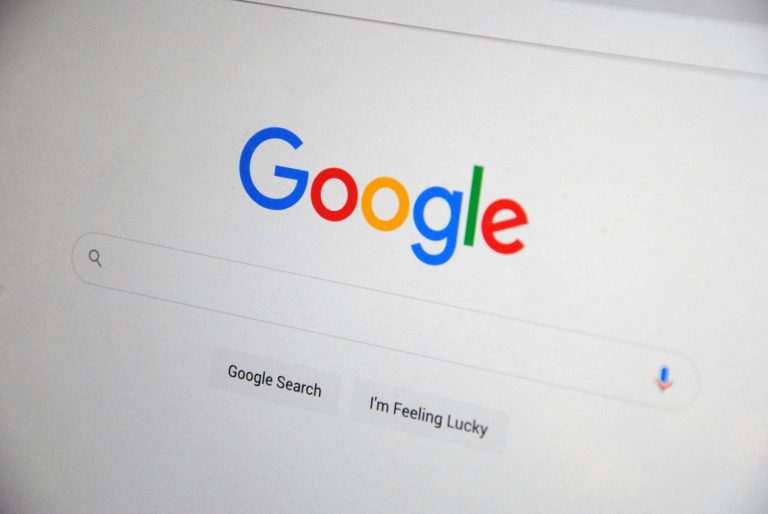
How to check for AI-generated content
Concerned that you’ve solicited human-written content but received an alternative by artificial intelligence (AI) instead? While Google doesn’t expressly penalise AI-generated content, it does value
Rapid evolution of technology has brought us to where we stand today, at the zenith of the Information Age. Of all the industries to benefit from digital overhauls to business practices, marketing is one of the biggest – if not the biggest.
Digital marketing is everywhere. Its efforts are encountered on practically any website you visit and drop into your email inboxes every day. How do we define a term that has become so broad and encompasses many practices? Let’s see.
..
Digital marketing is a loose term encompassing any marketing that utilises electronic devices and the internet as its vehicles. It can include emails, videos, blog posts and articles, and other multimedia forms that allow interactive banners or even small games built into adverts. Often, it will incorporate aspects of traditional marketing such as sponsorships or brand partnerships.
Digital marketing is incredibly versatile. Some of the best digital marketing become viral campaigns that far outreach their original goals, becoming pieces of pop culture that spread just as fast via word of mouth as they do over Twitter or TikTok.
One of the most popular and successful viral campaigns ever is the ALS Ice Bucket Challenge. The campaign, whose goal was to raise awareness of amyotrophic lateral sclerosis and increase donations for its research, saw people record videos of themselves dumping buckets of ice water over themselves and nominate friends to do the same.
The challenge itself spread through social media to the point that some 17 million videos were posted online, sweeping along celebrities who increased the campaign’s reach and momentum.
..
The various types of digital marketing change in number depending on who you ask, but there are some common core types:
All the way back in 1996, Bill Gates famously wrote that ‘content is king’ in an essay that was hosted on the Microsoft website. Despite the almost-30-year gap between his internet back then and ours now, it remains an absolute truth for many marketers.
Content marketing focuses on the use of high-value content to impart meaningful discussion, education, or opinion to readers. What makes that value? Original content with in-depth comment and knowledge that isn’t looking just to push your readers into sales.
Content marketing goes hand-in-hand with SEO, drawing more organic traffic to your pages with content that outshines the competition and proves your expertise, authority, and trustworthiness (EAT).
SEO is the not-quite-exact science of making your content and your pages optimised for search engine result pages (SERPs), hopefully ranking them highly and therefore making them more likely to be clicked.
Much of SEO is concerned specifically with Google, due to its overwhelming dominance of the search market. A lot of SEO best practice has been worked out over years by careful observation of what Google rewards and what it punishes, combined with the occasional snippet of information and some published guidance from Google itself.
The specific algorithms that help drive Google’s decisions regarding good and bad content are continually changing and being improved, so nothing is ever set in stone. The goal is ultimately long-term growth in traffic, yielding organic results that grow over time without being artificially bolstered.
..
PPC is, in some ways, the antithesis of SEO. Instead of looking to earn higher rankings on SERPs, PPC adverts are placed in advantageous positions that their cost affords. When a search is performed on Google, the SERP may display results above even the number one rank for organic results. These are the Google Ads PPC results, which a business wins by bidding on its desired keywords.
It is thought that less than 10% of searchers actually click on the ad results, but as PPC only takes payment every time a link is clicked through, they can be worthwhile side investments for certain businesses.
..
Social media marketing includes all your business’s posts and activity on social media platforms for the purpose of furthering engagement.
This takes more strategy and thought than simply posting for the sake of it. Social media marketing needs to be scheduled and planned ahead, joining in with relevant holidays and leaving room for reactive content.
..
Social media may be quicker and yield instant interaction and feedback, but email marketing remains a highly effective tool for digital marketing.
Newsletters and regular updates can keep customers in the loop and gently remind them of your brand, while being a vehicle for content marketing and other forms of marketing to spread ever farther.
..
..
Mobile marketing concerns efforts made to reach customers through their phones. Text messages, in-app adverts, push notifications, emails, and more can all fall under the banner of mobile marketing.
With smartphone users thought to number over 6.6 billion worldwide, mobile marketing has a platform in the pockets of over 80% of the people living on this planet.
..
Digital marketing started in the 1990s, when the internet developed into an interactive platform and began spreading to ordinary homes. Web 1.0, the earliest version of the internet, gave little footholds for digital marketing as advertisements were actually banned in these earliest days of the internet.
As the internet evolved and became more interactive – more ‘read and write’ and less ‘read only’ – digital marketing began to take off, and not with the best reputation. Clickable banners began to appear in the early 90s, and the infamous pop-up is an irritating concept still firmly associated with surfing the web even today.
The internet’s development and sophistication extended to the means available to digital marketers. The dawn of the search engine, and particularly the birth of Google, meant that there were routes of large volumes of internet traffic that were reliably being taken.
This also spelt the very early beginnings of SEO, which has in itself developed from a loose set of tactics to force content higher up the listings, to a more complex and algorithm-powered art that works with Google rather than in spite of it.
The constant fight to occupy a position at the top of Google’s rankings introduced opportunities to offer paid results with more favourable positions. Despite high-ranking organic outcomes being overall more attractive to a business, some draw as much as 80% of their business through these paid results.
Google itself has grown to dominate the global search market, leading to a multi-billion dollar advertising business. Whether or not you’re seen on Google is now tantamount to being visible or invisible on the internet itself.
Digital marketing very much started as little more than a business of creating nets, to which businesses would try to lure their customers. Flashy banner ads, pop ups that would hope for an accidental click or a scare tactic to catch engagement, and emails that would hopefully be read and followed through.
Google’s aforementioned dominance in search has led to around 92% of global searches taking place on its engine, but it isn’t the only place that marketers can rely on.
The introduction of social media brought a brand-new avenue of business for digital marketing. Focused groups of users that could be grouped by location, interest, mutual connections and posting activity are data goldmines for businesses looking to target the most precise audiences possible.
Digital marketing has come to lean heavily on the information provided by social media, with Facebook and Google making a combined $219m in 2020 through advertising – 34% of the market in its entirety.
Social media companies like Facebook, Instagram, and TikTok, some of the largest on the internet today, have embraced this purpose by providing their own business services embedded into their platforms. This allows advertisers to target given demographics within the user base by location, interests, and more.
Digital marketing has also grown heavily through the adoption of smartphones. Now staples of our culture, smartphones are set to make up three quarters of all internet access by 2025. Smartphone apps often build themselves on the model of free to download and use but with frequent adverts punctuating sessions of use.
Signing up to these apps present opportunities for data capture, too. Gender, age, location, and contact details can be captured easily, giving app developers a good overview of their userbase for the purposes of market research.
..
Digital marketing strategies have more tools to draw from than ever before.
Software-as-a-service (SaaS) platforms like SEMrush have emerged to provide keyword research and ranking data for businesses. Services like these give marketers an overview of what their target market are searching for and trying to accomplish with their online activity, giving them the precise words and ideas they need to target in their messaging.
Modern digital marketing strategies are precise, informed, and data-driven to make the most impact possible. Not all marketing in the digital sphere is concerned with search, but with billions of searches being performed every year, ignoring your links on Google can be tantamount to failure.
Smartphones represent a dramatic shift in the considerations of digital marketers. Not only can the apps and internet browsing take place in virtually any location, but that location can automatically be detected and factor in to the content a smartphone user sees in the first place.
Additionally, it is now imperative that sites pay extra consideration to being mobile-friendly and designed in a way that is intuitive for smartphones. On-page wording must also be brief enough so as not to lose the short attention spans of the average idle scroller, with modern smartphone usage thought to have dramatically impacted our collective ability to focus.
Digital marketing strategies now seek to be adaptable, information-driven and measurable, and agile so as to respond to changes in the cultural landscape and capitalise on big events as they happen.
Like any marketing, good digital marketing leads to more traffic for your business’s web pages, a greater number of enquiries, and more people browsing your store.
Besides the obvious tangible yields of digital marketing – more sales, more interaction with your social media pages, greater brand awareness – a solid online strategy shows that your business embraces the digital spaces that your audience are typically spending a lot of free time on.
Strategies such as SEO also mean that, over time, you’re more likely to be the solution to someone’s problem when searching online.
..
The internet isn’t going anywhere! As e-commerce continues to dominate the economy, Google searches provide information faster than a trip to the library, and social media platforms continue to be the places for people who can’t (or won’t) frequent social spaces, cyberspace is the most likely place for your business to be discovered and used.
A good content strategy can pay for years to come. The right piece of trustworthy, in-depth content can form a solid cornerstone of your website and draw continuous amounts of readers who will come to associate your name with knowledge and expertise on your given field.
That depends on the business and the target audience. A younger target audience are better targeted through social media and mobile marketing, where they can be reliably found and reached. Working professionals and small businesses may be better drawn in through email marketing.
Good market research ought to inform your chosen approach and tailor your choices to best suit the market you’re looking to grab.
..
We understand digital marketing to an expert level, choosing the best approaches for you to help your business grow.
Our award-winning campaigns can target SEO in Manchester, grow your SEO in Liverpool, or deliver high-quality content and growth for indeed anywhere in the UK.
To learn more about our work, contact us today.
..
Content is King. What is content marketing?
Creating great content: How to write for SEO
How video content can elevate your website
Top 20 Facts about Manchester You Never Knew
Aqueous Digital’s Ultimate Guide to the cost of SEO in the UK
Aqueous Digital’s Guide to the Top 501 SEO and Digital Marketing Terms
How video content can elevate your business

Concerned that you’ve solicited human-written content but received an alternative by artificial intelligence (AI) instead? While Google doesn’t expressly penalise AI-generated content, it does value

At Aqueous Digital, we’ve long maintained the belief that the concept of reviewing companies is flawed, having a significant effect on the success of businesses

Searching for different ways to connect with your target audience? With curated content, you can engage key demographics that are vital for the success of

Taking no less than two weeks to complete, Google’s first core update of the year has now finished rolling out, as reported by Search Engine

It’s no secret that ever since the early 2000’s, Google has been the go-to search engine for online users across the world, but with AI

Struggling to determine how much money your construction business should be dedicating to your marketing efforts? As award-winning digital marketing experts, the Aqueous Digital team